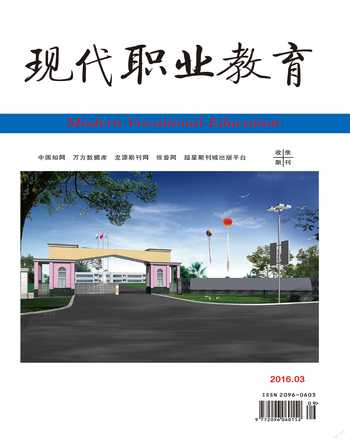浅谈开放大学学位英语考试中的词形变化
李淑芳
[摘 要] 在英语语言学习中,词汇的积累是至关重要的一个环节,而浩如烟海的英语单词却往往使学习者望而却步。拟依托开放大学学位英语考试中词形变化一题,从构词法中词缀法的角度,对单词学习与记忆及使用试做初步探讨。
[关 键 词] 学位英语;前缀;后缀
[中图分类号] G642 [文献标志码] A [文章编号] 2096-0603(2016)09-0092-03
在英语学习中,单词的学习与记忆一直都是最令英语学习者头痛的问题之一。美国语言学家卡纳尔
(M.Canale)和斯温(M.Swain)曾指出,语言能力的培养是交际能力培养中至关重要的一环,而词汇则是使交际得以进行的语言能力的核心部分之一。要记住并正确使用一个英语单词,需从音、形、义等多个方面记忆与思考。1976年出版的《韦氏第三版新国际英语大辞典新词续编》收录了该大辞典1961年出版后出现的6000个新词。这些新词中有一半是人们为了适应社会新的发展依据构词法造出来的:其中五分之二属“缀合”,五分之三为“合成”。可见,英语构词法对英语的发展具有多么大的作用。构词的方法主要有四大类:前缀法、后缀法、转化及合成。其中,前缀法和后缀法合成为“缀合”(affixation)。
上海开放大学工商管理专业学位英语的考试中,有根据所给单词结合句子结构需要进行词形变换的考题。本文拟依托相关题目,从词缀的添加对词性与词义的改变角度出发,初步探讨学位英语考试中英语单词部分常见的词形变化。
如前所述,英语词缀基本可分为前缀和后缀两种。一般来说,前缀会改变单词的词义,后缀多改变单词的词性。在工商管理专业的学位英语考试中,后缀的考查涉及名词(n.)后缀、形容词(adj.)后缀和副词(adv.)后缀等;前缀主要考查了否定前缀。同时,有些词缀可能涉及不止一种的词性变化。
一、后缀
(一)名词后缀
1.名词后缀-er、-or、-ar
在行为动词后加后缀-er、-or、-ar等,其词性变为名词,表示该动作的行为主体。即:v. + -er / -or / -ar = n .例如:
(1)(translate)A person who turns what someone has
written into another language is called a translator.
(2)(sing)I wish I will be a singer one day.
其中,以后缀-er结尾的词居多,-or次之,-ar相对较少,例如:
beg (v.乞讨) →beggar (n.乞丐)
另外,虽然这些后缀添加后,大多指做该动作的人,但是,也不可一概而论,有时指用来进行该动作的器具,如cook (v. 烹饪) → cooker (n. 炊具),而“厨师”是与动词相同的cook来表达。
2.名词后缀-ment
在动词之后加后缀-ment,其词性变为名词,即:v. + -ment = n. 例如:
(1)(agree)It took several months for the two companies to reach an agreement.
(2)(establish)The establishment of Peoples Republic of China is on October 1st,1949.
(3)(announce)The announcement came as no great
surprise.
3.名詞后缀-ion
在动词之后加后缀-ion,其词性变为名词,即:v. + -ion = n.有时该词缀会变化为-ation,或-action,例如:
(1)(connection)You must connect the power before you leave the room.
(2)(hesitate)I have no hesitation in recommending her for the job.
(3)(discuss)Wed better postpone the discussion next
week.
(4)(decorate)I enjoy the decoration of the new house.
(5)(satisfy)Toms success in his career will be a great satisfaction to his family.
(6)(prepare)We have made good preparations for the exam.
4.名词后缀-ance、-ence
其一:在动词之后加后缀-ance,其词性变为名词,即:v. + -ance = n.例如:
(1)(attend)The attendance at the lectures on American literature has dropped off.
(2)(accept)Please confirm your acceptance of this offer in writing.
其二:以-ant或-ent结尾的形容词,分别变为-ance和-ence,其词性变为名词:
(1)(importance)It is important that the problem is
worked out today.
(2)(patient)He cant be a good teacher because he has no patience with children.
5.名词后缀-y
在形容词之后加后缀-y,其词性变为名词,即adj. + -y = n.例如:
(difficulty)I think Japanese grammar is much more
difficult to learn than English grammar.
类似的还有,-ity、-cy、-ibility等,例如:
(1)(sincere)The priest was a man of deep sincerity.
(2)(accurate)We worried about the accuracy of the
report.
(3)(response)We appreciate working with him,because he has a good sense of responsibility.
其中,最后一例给出的response是名词,意思是:“回答、回应”,而题目中需要的也是名词,但其词义应是“责任感”,因此,这里实则是由response的同根形容词responsible,将其后缀-ible变为-ibility得到的名词。
(二)形容词后缀
形容词后缀主要有名词转形容词和动词转形容词两大类。
第一类为:名词转形容词。
1.形容词后缀-ful
在名词之后加后缀-ful(充满),其词性变为形容词,即:n. +-ful = adj.多与抽象名词构成形容词,例如:
(1)(help)The local hot springs are very helpful for your wounded arm.
(2)(use).These book are useful for English learners.
(3)(event)That was an eventful year.
(4)(harm)These chemicals are harmful to the envir-
onment.
2.形容词后缀-y
在名词之后加后缀-y,其词性变为形容词,即:n. + -y = adj.也可与动词构成形容词,表示“类似”,“具有……特征”等,例如:
(1)(rain)It is a rainy day, isnt it?
(2)(sleep)She may be sleepy.
(3)(luck)Mary is the lucky dog who gets the first prize.
(4)(healthy)Give up smoking. Your health will improve soon.
3.形容词后缀-ic、-ical
有些外来词缀和外来词根结合构成的形容词,一般用于正式文体,如在名词之后加后缀-ic,或-ical,其词性变为形容词,即:n.+-ic/ -ical = adj.表示“具有……特点”,“与……有关”,例如:
(1)(romance)When I was young,I had romantic ideas
of becoming a writer.
(2)(practice)This model of typewriter is efficient,
economical and practical.
(3)(technique)Both of the twin brothers are capable of doing technical work at present.
4.形容词后缀-ly
名词加后缀-ly,其词性变为形容词,表示特色,如:
(friend)The local people are very friendly in our coun-try.
第二類为:动词转形容词。
1.形容词后缀-able:
在动词之后加后缀-able,其词性变为形容词,即:v. + -able = adj.多表示被动语态,例如:
(1)(comfort)I want to rent a more comfortable room.
(2)(believe)It is unbelievable that you have been 56 year old. You look much younger than that.
2.形容词后缀-ive
在动词之后加后缀-ive,其词性变为形容词,即:v. +-ive =adj. 常表示主动语态,例如:
(act)He is always active in the class.
3.动词加-ed变化而来的过去分词,也可以充当形容词来用,表示“具有……”,例如:
(delight)The mother was delighted to see his daughter.
(inform)Please keep us informed of any developments.
(三)副词后缀-ly
在形容词之后加后缀-ly,其词性变为副词,-ly是形容词转副词最常用的后缀,例如:
(heavy)My husband used to smoke heavily,but he has given it up.
(heavy)It began to rain heavily as soon as I got home.
二、前缀
各类词性都存在添加前缀的情况,与后缀常常改变单词的词性不同,前缀一般不会改变單词的词性,而是会改变其词义。其中,在学位英语里,前缀的考查主要集中在否定前缀上。常见的否定前缀有un-,in-,im-,dis-等,这些大多没有具体规律可依循,需要学习者在实践中不断积累和记忆。例如:
(just)The system is corrupt and unjust.
(believe)It is unbelievable that you have been 56 year old. You look much younger than that.
(connection)You must disconnect the power before you leave the room.
三、辨析
在后缀中,有些词缀可能涉及不止一种词性变化,这些要格外注意,例如:
(一)后缀-y
在单词之后添加后缀-y,有的可使其词性变为名词,有的则变为形容词,具体如下:
1.名词后缀
将后缀-y加在形容词之后,其词性变为名词,即:adj. + -y = n.例如:
(difficulty)I think Japanese grammar is such more
difficult to learn that English grammar.
2.形容词后缀
将后缀-y加在名词之后,其词性变为形容词,即:n. + -y = adj.例如:
(rain)It is a rainy day, isnt it?
(healthy)Give up smoking. Your health will improve
soon.
(sleep)She may be sleepy.
(luck)Mary is the lucky dog who gets the first prize.
(二)后缀-ly
在单词之后添加后缀-ly,有的可使其词性变为形容词,有的则变为副词,具体如下:
1.形容词后缀
将后缀-ly加在名词之后,其词性变为形容词,即:n. + -ly = adj.例如:
(friend)The local people are very friendly in our coun-try.
2.副词后缀:
将后缀-ly加在形容词之后,其词性变为副词,即:adj. + -ly = adv.例如:
(heavy)My husband used to smoke heavily,but he has given it up.
(heavy)It began to rain heavily as soon as I got home.
综上所述,词汇学习在语言教学中占有重要的地位,是贯穿整个英语教学中一项繁重而艰巨的任务,是应该着重攻破的一道难关。在英语学习中,尤其是英语单词的学习、记忆以及使用的过程中,在掌握了一定的基本词汇的基础上,如果可以了解一些英语单词构词法中常见的词缀,结合这些构词规律,那么首先可以在相对较短的时间内扩大词汇量。之前认为的长词可以变短,难词可以变易,生词可以变熟,同时一切派生词的拼法也可以迎刃而解。
对于开放大学的学生来说,成人学习者的特点是已经具备一定的语言学习基础,因而,有了一定的词汇量积累。这些单词积累中,词根构成了一个基本而核心的组成部分,词根具有固定的形式和一定的含义,是构成单词的主要成分。在此基础上,结合一定的构词方法学习,如本文中涉及的词缀构词法,就可以更好地进行单词积累,不仅可以扩大词汇量,而且可以使语言表达更加精准。即便从面对学位英语这样的考试角度出发,也可以轻而易举地攻克该题型,实现英语语言学习中又一次质的飞跃。
参考文献:
[1]楼光庆.简明英语语法教程[M].中央广播电视大学出版社,2002-06.
[2]王瑛.学士学位英语辅导教材[M].上海高教电子音像出版社,2014-07.

